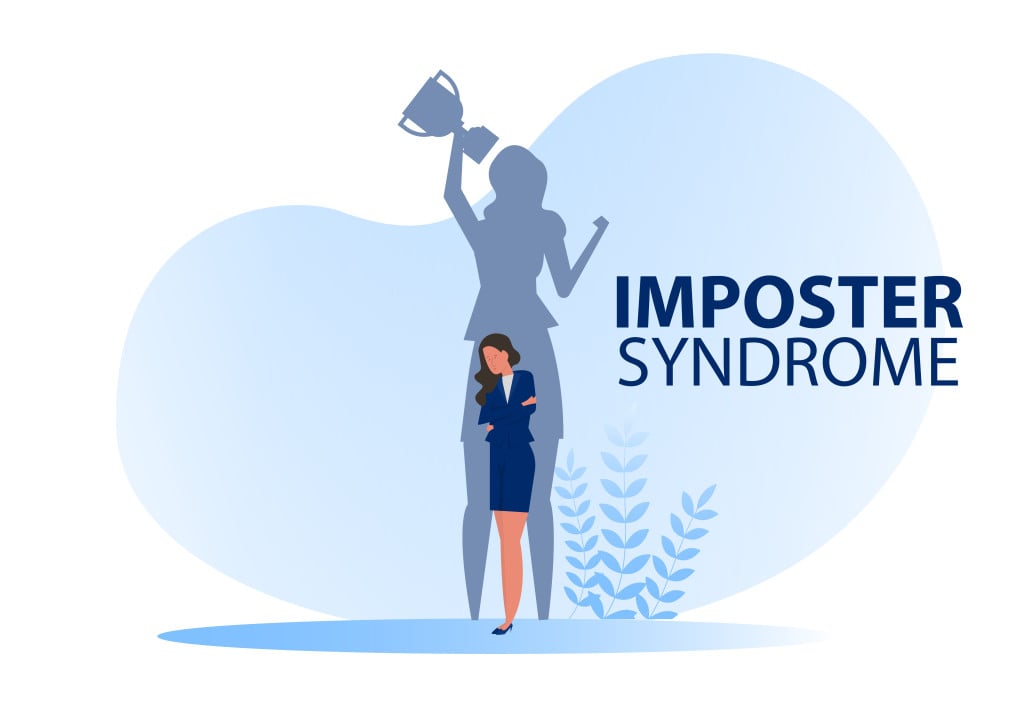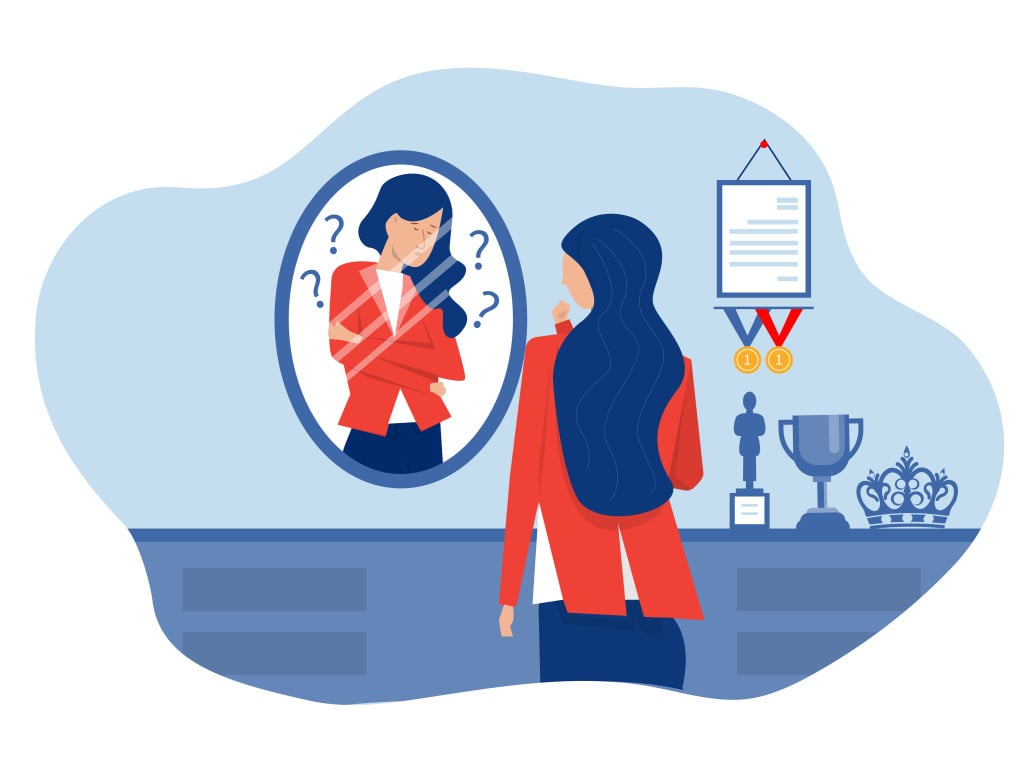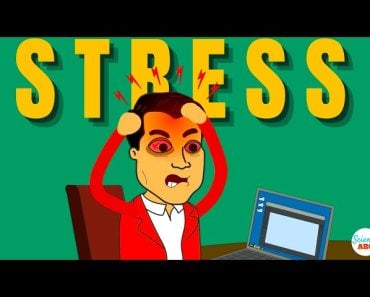Imposter syndrome is a persistent feeling that you are inadequate. These feelings of self-doubt persist even in the face of evidence of your competence and achievements.
Do you ever get the feeling that you’re a fraud, especially after you’ve accomplished something important? Do you constantly worry that you’re just one step away from being exposed as an imposter, as someone who doesn’t know what they’re doing among people who are actually competent? You tell yourself, “It was all luck. They’ll all find out eventually that I’m not right for the role.”
If this sounds familiar, you may be experiencing imposter syndrome.
Recommended Video for you:
What Is Imposter Syndrome?
Imposter syndrome is a persistent feeling that one is inadequate. These feelings of self-doubt persist even in the face of evidence of a person’s competence and achievements.
This syndrome was first described by psychologists Pauline Clance and Suzanne Imes in 1978. Their study looked at 15o high-achieving women who felt like intellectual frauds in their workspace. All these women were in therapy with the researcher or held positions at the university.
From their interviews with the women, Clance and Imes found that early family dynamics and societal sex-role stereotypes contributed to the development of imposter syndrome.
This can lead people to believe that they are not as intelligent as others perceive them to be, despite their impressive academic and professional accomplishments. Surprisingly, even numerous achievements did not alleviate their persistent belief of being an imposter.

Since the original study, psychologists have broadened their research around imposter syndrome. A systematic review of 62 individual studies on imposter syndrome, published in 2020, found that, among professionals, both men and women are affected by imposter syndrome, and that it can lead to increased stress, anxiety, burnout and lower job satisfaction.
What Causes Impostor Syndrome?
Researchers who studied imposter syndrome in a cohort of 201 Belgian employees identified certain personality traits that are associated with imposter feelings.
Many participants who suffered from imposter syndrome had unrealistic perfectionistic tendencies. They experienced a lack of confidence and self-efficacy in managing their behavior and responsibilities.
Individuals who score higher on measures of neuroticism (a trait associated with emotional instability), and lower on measures of conscientiousness (a trait associated with being organized and responsible), are also more likely to experience imposter syndrome
Unrealistic expectations from oneself is a recurring pattern. High achievers often set high standards for themselves, sometimes so high that they are bound to fail. They believe they should excel at every task and attribute their accomplishments solely to external factors, such as luck or favorable circumstances. Consequently, they discount their skills and hard work, thinking that they don’t deserve their achievements.
To exacerbate this, high achievers who suffer from imposter syndrome are often driven by a fear of failure. They constantly worry that they won’t live up to the expectations they have set for themselves or that others have of them.
This fear intensifies the imposter syndrome experience, as they believe any mistake or setback will expose them as frauds.

High achievers often compare themselves to others and downplay their own accomplishments. They believe that everyone around them is more competent or successful, leading to the perception that they are undeserving of their achievements.
Sociocultural influences also play a role in imposter syndrome. A review of studies on imposter syndrome found that individuals from marginalized groups may experience heightened imposter feelings due to societal biases and stereotypes.
Their research found that women and people of color are more likely to report feeling like an imposter. The awareness of gender or racial bias can lead individuals to work harder to disprove harmful stereotypes. Consequently, individuals experiencing imposter syndrome may feel compelled to exert more effort than others in order to gain recognition and be taken seriously.
The mere awareness of negative stereotypes can hamper performance, leading individuals to dwell on mistakes and further undermine their confidence in their abilities.
The Psychological Effects Of Imposter Syndrome

Research has revealed that there is a negative correlation between imposter syndrome and mental health, suggesting that imposter feelings can significantly impact a person’s overall psychological well-being.
A negative correlation means that there is an inverse relationship between two variables; as imposter feelings increase, mental health tends to decrease.
Moreover, imposter syndrome can also hinder professional growth and success.
Research has revealed that individuals experiencing imposter feelings are less likely to seek out challenging opportunities and are more prone to experiencing career dissatisfaction. The fear of failure and the belief that one does not deserve their accomplishments can result in individuals being hesitant to take risks or pursue new avenues for growth.
Evidence-Based Strategies For Overcoming Imposter Syndrome
Several evidence-based strategies can help individuals overcome imposter syndrome. Cognitive restructuring, a cognitive-behavioral intervention, has shown promising results in reducing imposter feelings. By challenging negative thought patterns and replacing them with more realistic and positive beliefs, individuals can gradually shift their mindset and develop a more accurate perception of their abilities.
Mindfulness-based interventions, such as meditation and self-compassion exercises, have been shown to reduce imposter feelings. These practices promote self-awareness, self-acceptance, and resilience, enabling individuals to approach their challenges with greater equanimity and self-compassion.
Additionally, investing in professional development and skill-building can bolster self-confidence and competence. Acquiring new knowledge and skills through continuous learning opportunities can help individuals reinforce their expertise.
Imposter syndrome is a multifaceted psychological phenomenon that can hinder individuals’ well-being and professional success. Society and one’s individual personality both contribute to feeling like an imposter. The good news is that this condition can be treated and worked through, particularly with a mental health professional.
References (click to expand)
- Clance, P. R., & Imes, S. A. (1978). The imposter phenomenon in high achieving women: Dynamics and therapeutic intervention. Psychotherapy: Theory, Research & Practice. American Psychological Association (APA).
- Bravata, D. M., Watts, S. A., Keefer, A. L., Madhusudhan, D. K., Taylor, K. T., Clark, D. M., … Hagg, H. K. (2019, December 17). Prevalence, Predictors, and Treatment of Impostor Syndrome: a Systematic Review. Journal of General Internal Medicine. Springer Science and Business Media LLC.
- Vergauwe, J., Wille, B., Feys, M., De Fruyt, F., & Anseel, F. (2014, October 4). Fear of Being Exposed: The Trait-Relatedness of the Impostor Phenomenon and its Relevance in the Work Context. Journal of Business and Psychology. Springer Science and Business Media LLC.
- Sagar, S. S., Lavallee, D., & Spray, C. M. (2007, September). Why young elite athletes fear failure: Consequences of failure. Journal of Sports Sciences. Informa UK Limited.
- Feenstra, S., Begeny, C. T., Ryan, M. K., Rink, F. A., Stoker, J. I., & Jordan, J. (2020, November 13). Contextualizing the Impostor “Syndrome”. Frontiers in Psychology. Frontiers Media SA.
- Bravata, D. M., Watts, S. A., Keefer, A. L., Madhusudhan, D. K., Taylor, K. T., Clark, D. M., … Hagg, H. K. (2019, December 17). Prevalence, Predictors, and Treatment of Impostor Syndrome: a Systematic Review. Journal of General Internal Medicine. Springer Science and Business Media LLC.
- Jöstl, G., Bergsmann, E., Lüftenegger, M., Schober, B., & Spiel, C. (2012, January). When Will They Blow My Cover?. Zeitschrift für Psychologie. Hogrefe Publishing Group.
- S Lausch. (2021) i will not stand in my way – exploring the effects of.
- Noskeau, R., Santos, A., & Wang, W. (2021, November 16). Connecting the Dots Between Mindset and Impostor Phenomenon, via Fear of Failure and Goal Orientation, in Working Adults. Frontiers in Psychology. Frontiers Media SA.












